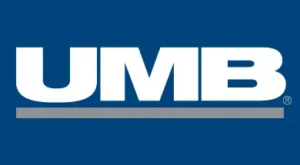Discover the benefits of the UMB Health Savings Account (HSA) and how it can help you save on medical expenses and plan for future healthcare costs.
Introduction
UMB Health Savings Account (HSA) are a powerful tool for managing healthcare costs, offering tax advantages and long-term savings potential. The UMBC Health Savings Account (HSA) is designed to provide employees with a flexible and efficient way to handle medical expenses. This blog post will dive deep into the benefits, eligibility, and optimal usage of the UMBC HSA, ensuring you have all the information needed to maximize its advantages.

What is a UMB Health Savings Account (HSA)?
An HSA is a tax-advantaged account designed to help individuals save for medical expenses. Funds contributed to an HSA are not subject to federal income tax at the time of deposit. The account can be used to pay for qualified medical expenses at any time without federal tax liability.
Benefits of the UMB Health Savings Account (HSA)
- Tax Savings: Contributions to your HSA are tax-deductible, reducing your taxable income. Withdrawals for qualified medical expenses are also tax-free.
- Flexibility: The UMBC HSA can be used for a wide range of medical expenses, including doctor visits, prescription medications, and even some over-the-counter items.
- Portability: The funds in your HSA roll over year to year, meaning you don’t lose any unused money. Additionally, the account is yours to keep even if you change jobs or retire.
- Investment Opportunities: HSA funds can be invested, potentially growing your savings over time. This can be especially beneficial for long-term healthcare planning.
- Control Over Healthcare Spending: With an HSA, you have more control over how and when your healthcare dollars are spent, allowing for better budgeting and financial planning.
Eligibility for the UMB Health Savings Account (HSA)
To be eligible for the UMBC HSA, you must be enrolled in a high-deductible health plan (HDHP). This type of health insurance plan typically has lower premiums but higher deductibles, making it a good fit for those who want to take advantage of the tax benefits and savings potential of an HSA.
How to Enroll in the UMB Health Savings Account (HSA)
- Check Eligibility: Ensure you are enrolled in an HDHP and meet any additional eligibility requirements set by UMBC.
- Open an Account: Work with UMBC’s HR department or the designated HSA administrator to open your account.
- Contribute Funds: Decide how much to contribute to your HSA. Remember, contributions are tax-deductible, and there are annual limits set by the IRS.
- Start Using Your HSA: Once your account is funded, you can begin using it for qualified medical expenses.
Maximizing Your UMB Health Savings Account (HSA)
- Contribute the Maximum: To get the most tax benefit, aim to contribute the maximum amount allowed by the IRS each year.
- Save Receipts: Keep records of all medical expenses paid with your HSA to ensure they are qualified and to take advantage of tax benefits.
- Invest Wisely: Consider investing a portion of your HSA funds to grow your savings over time. Many HSAs offer investment options similar to a 401(k) or IRA.
- Plan for the Future: Use your HSA as a long-term savings tool for retirement medical expenses. After age 65, you can use HSA funds for non-medical expenses without penalty (though they will be subject to regular income tax).
Frequently Asked Questions (FAQs)
Q: What expenses are eligible for HSA funds?
A: Qualified expenses include doctor visits, prescription medications, dental care, vision care, and certain over-the-counter items. A full list can be found on the IRS website.
Q: Can I use my HSA to pay for health insurance premiums?
A: Generally, HSA funds cannot be used to pay health insurance premiums except in specific cases, such as COBRA coverage, long-term care insurance, or while receiving unemployment benefits.
Q: What happens to my HSA if I leave UMBC?
A: Your HSA is portable, meaning it stays with you even if you leave UMBC. You can continue to use the funds for qualified medical expenses or transfer the account to a new HSA provider.
Q: Are there limits to how much I can contribute to my HSA?
A: Yes, the IRS sets annual contribution limits. For 2024, the limits are $3,650 for individuals and $7,300 for families. Individuals aged 55 and older can contribute an additional $1,000.
Conclusion
The UMBC Health Savings Account offers a range of benefits that make it an attractive option for managing healthcare costs. From tax advantages to investment opportunities, an HSA provides flexibility and control over your healthcare spending. By understanding how to maximize the benefits of your UMBC HSA, you can ensure that you are making the most of this valuable financial tool.




